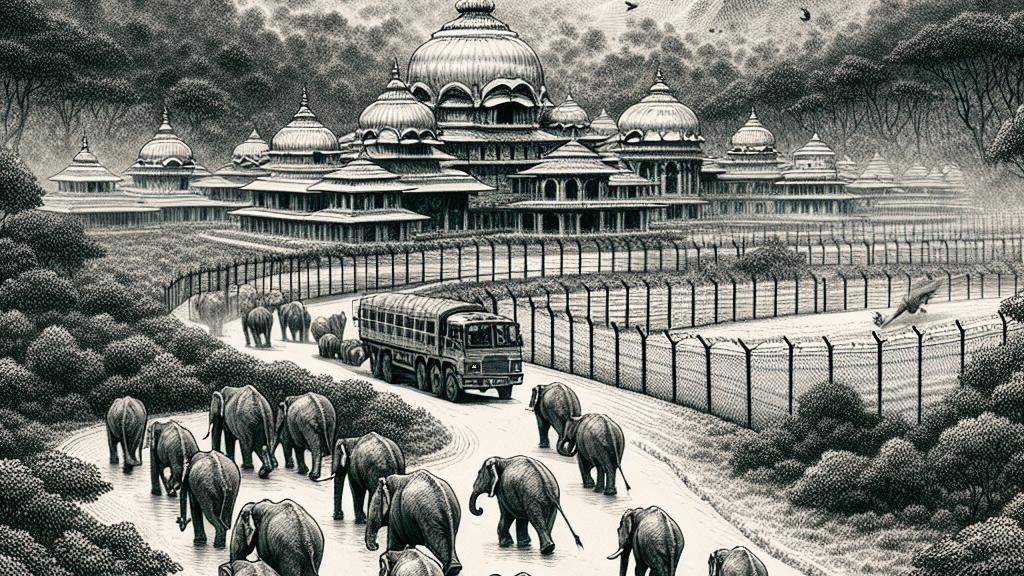Journey of Elephants to a Giant Zoo Created by a Young Billionaire
Overview
- An epic journey: 20 elephants travel 3,200 km across India.
- Visionary project led by Anant Ambani aims to rescue and rehabilitate wildlife.
- Mixed public reactions highlight ethical concerns about private zoos.

A Grand Expedition for Elephants
Imagine a caravan of 20 elephants embarking on an extraordinary 3,200 km odyssey that stretches across India! They are journeying from the lush, misty forests of Arunachal Pradesh in the north-east to the opulent private zoo constructed by Anant Ambani, the youngest heir of billionaire industrialist Mukesh Ambani. This ambitious zoo claims to be the largest wildlife rescue center on the planet, intending to offer these magnificent beings a sanctuary from their prior hardships in the logging industry. Although Anant’s noble efforts to liberate these elephants from chains and provide them with a safe haven are commendable, they invite scrutiny: is this really a liberation, or simply a shift from one form of captivity to another within a lavish private establishment?
Public Reaction: Enthusiasm and Apprehension
The public's reaction to this monumental undertaking has been a fascinating study in contrasts. While enthusiastic supporters flood social media with messages of approval, celebrating Anant Ambani's dedication to rescuing elephants from their suffering, critics voice stark apprehensions. Their concerns revolve around the notion of a private zoo—what does it mean for endangered species to be housed in such an environment? Many wonder if the elephants, though freed from their chains, are merely trading confinement for another type of captivity, one that prioritizes human interests over the animals’ natural instincts and welfare. This ongoing dialogue accentuates the critical need for ethical wildlife conservation, particularly in an era where the influence of wealth can easily overshadow the voices of conservationists.
Lessons from Successful Wildlife Sanctuaries
To gain a more nuanced understanding, let’s look at successful wildlife sanctuaries that take a different approach, such as the Sheldrick Wildlife Trust and the Reteti Elephant Sanctuary in Kenya. These organizations excel in rescuing orphaned elephants, rehabilitating them, and ultimately reintegrating them into the wild. For instance, the Sheldrick Trust, having cared for over 320 orphaned elephants, blends compassion with community involvement, creating a sustainable ecosystem for wildlife. Likewise, Reteti, the first community-owned elephant sanctuary in Africa, empowers local communities by training them to become caretakers. This grassroots model not only fosters respect for wildlife but also ensures that the elephants receive individualized care, something that the lavish private zoo might struggle to replicate.
Looking Ahead: Ethical Reflections on Captivity
As we witness the unfolding saga of elephants on their way to Anant Ambani's extravagant zoo, profound ethical questions loom large. The future of these majestic beings relies on our ability to navigate the delicate balance between luxury and responsible stewardship. Are we truly prepared to contemplate innovative ways that prioritize the well-being of wildlife over the desires of powerful individuals? While Anant Ambani's intentions may seem admirable, it is crucial to ensure that the conversation shifts toward genuine wildlife conservation, advocating for their right to live freely in their natural environments. Ultimately, the quest for a harmonious existence between humanity and nature rests on our shoulders—will we rise to the occasion?

Loading...